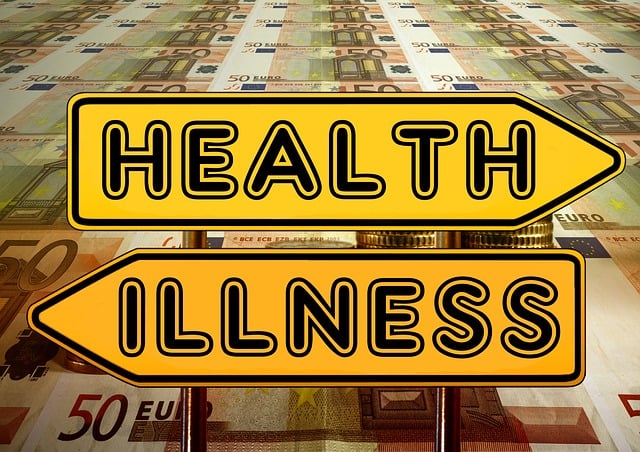Comprehensive Liability Insurance is a crucial safety measure for small businesses, protecting them from various risks and potential lawsuits related to accidents, injuries, property damage, and professional negligence. It covers medical expenses, legal fees, and damages, offering peace of mind and financial security. Small business owners should understand the three primary types: General, Professional (Errors & Omissions), and Product Liability Insurance. When selecting coverage, balance protection with cost-efficiency, regularly reviewing policies to adapt to changing needs and exclusions like intentional acts or specific damage types. Understanding claims processes and familiarizing yourself with policy details is vital. Cost factors include business operations, size, and financial stability, with insurers considering incident frequency and severity. Specialized coverages like ride-share and cyber liability insurance enhance protection in the modern economy.
“Uncertain about liability coverage for your small business? Navigating insurance options can be overwhelming, but understanding comprehensive liability insurance is a vital step towards safeguarding your venture. This guide offers an in-depth look at what you need to know. From deciphering different types of liability—general, professional, and product—to learning how the right coverage protects your business from potential risks and claims, this article has you covered. Discover common exclusions, the claims process, and factors influencing premiums. Plus, explore optional enhancements like ride-share and cyber liability coverage to ensure a comprehensive risk management strategy.”
Understanding Comprehensive Liability Insurance: A Small Business Guide

Comprehensive Liability Insurance is a crucial safety net for small businesses, offering protection against a wide range of potential risks and claims. This type of insurance goes beyond general liability by covering various incidents that could lead to lawsuits or financial losses. It’s designed to safeguard your business assets, protect your financial stability, and provide peace of mind.
For small businesses, understanding this coverage is essential as it can help mitigate the costs associated with accidents, injuries, property damage, and more. Comprehensive Liability Insurance typically includes medical expenses for injured parties, legal fees incurred during defense against lawsuits, and compensation for damages or losses suffered by others due to your business activities. By having this insurance in place, you can navigate unexpected events with confidence, ensuring your business remains resilient and secure.
What is Liability Coverage and Why Does Your Business Need It?

Liability coverage is a crucial component of any small business’s risk management strategy. It protects against potential claims and suits arising from incidents that may harm customers, employees, or third parties. These could include accidents, property damage, personal injury, or even professional negligence. Comprehensive Liability Insurance, also known as general liability insurance, offers broad protection by covering medical expenses, legal fees, and damages awarded in such cases.
Having comprehensive liability insurance is essential for several reasons. First, it shields your business from significant financial losses resulting from unforeseen events. Second, it demonstrates to customers, partners, and investors that you prioritize safety and risk mitigation. Third, it provides peace of mind, ensuring that your business remains protected against potential legal repercussions and enabling you to focus on growth and success.
Different Types of Liability: General, Professional, and Product

Liability coverage is a crucial aspect of protecting any business, and small enterprises are no exception. Understanding the various types of liability insurance is essential for business owners to make informed decisions about their risk management strategies. There are three primary categories: General, Professional, and Product Liability Insurance.
General Liability Insurance offers a comprehensive protection net against common risks, such as bodily injury or property damage to customers or third parties on your premises. It covers legal fees and damages in case of lawsuits resulting from accidents or incidents related to your business operations. Professional Liability Insurance, often referred to as Errors and Omissions (E&O) coverage, protects small businesses from financial loss due to professional negligence, errors, or omissions made during the course of providing services to clients. Product Liability Insurance is specifically designed for manufacturers and sellers, shielding them from claims related to defects in their products that cause harm to consumers. Each type of liability insurance plays a vital role in safeguarding small businesses from potential financial disasters, ensuring they can maintain operations and protect their assets effectively.
How Does Comprehensive Liability Insurance Protect Your Business?

Comprehensive Liability Insurance is a powerful tool for small businesses aiming to safeguard themselves against potential risks and claims. This type of insurance offers broad protection, covering various liability scenarios that could arise in the course of business operations. When an incident occurs, such as property damage, personal injury, or professional negligence, Comprehensive Liability Insurance steps in to shield your business from financial loss.
It provides a safety net by covering legal expenses, settlement costs, and damages awarded in lawsuits. This means if a client slips and falls on your premises, or a product you’ve manufactured causes harm, the insurance policy will help manage the situation legally and financially. By having this coverage, small businesses can focus on growth and success, knowing they have a reliable backup plan to navigate unexpected legal challenges.
Determining the Right Level of Coverage for Your Venture

Choosing the appropriate level of liability coverage is a critical step in protecting your small business from potential risks and financial losses. It’s essential to strike a balance between ensuring adequate protection and avoiding unnecessary expenses. Comprehensive Liability Insurance offers a solid foundation by covering claims related to bodily injury, property damage, and personal and advertising injury. However, the specific limits and policy details should align with your venture’s unique needs.
Consider factors such as your business activities, potential customer interactions, physical locations, and legal exposure when deciding on coverage levels. For instance, a retail business with high foot traffic might require higher limits to cover the risk of slip-and-fall incidents. Regularly reviewing and adjusting your policy is vital, especially as your business evolves, new risks emerge, or regulatory changes occur.
Common Exclusions to Watch Out For in Liability Policies

When reviewing a liability policy, small business owners should be aware of certain common exclusions that could significantly limit their coverage. These exclusions vary by insurer and policy type but often include situations involving intentional acts, ongoing operations or conditions, and certain types of damage or loss. For instance, policies typically exclude liability for punitive damages, which are designed to punish a defendant rather than compensate a victim. Additionally, comprehensive liability insurance usually excludes claims arising from the business’s own products, work, or services, including any defects or issues that arise during their normal use.
Understanding these exclusions is crucial as they can leave gaps in protection. Business owners should carefully read and understand every term to ensure their operations and potential liabilities are fully covered. Consulting with an insurance professional can help clarify these points and ensure the policy aligns with the business’s unique needs.
The Claims Process: What You Need to Know Beforehand

Before delving into a claims process, small business owners should grasp the fundamentals of their Comprehensive Liability Insurance. This policy is designed to protect against lawsuits and medical expenses arising from accidents or incidents that may occur on your premises. Understanding this process beforehand can help streamline potential challenges.
The claims journey begins when you receive notice of a claim. The first step is to gather essential information, including details about the incident, any injuries sustained, and relevant evidence. Promptly notify your insurance provider, providing them with accurate facts to facilitate a swift assessment. They will assign an adjuster who will guide you through the process, helping to determine liability and the scope of coverage. This collaboration ensures a smooth transition towards resolution, whether that’s through settlement negotiations or legal proceedings.
Factors Influencing Liability Insurance Premiums for Small Businesses

Several factors influence the liability insurance premiums small businesses pay, with each playing a crucial role in determining coverage costs. One of the primary considerations is the nature of the business operations. Industries with higher risks of physical harm or property damage tend to face more substantial premium increases. For instance, construction sites and manufacturing facilities may require specialized policies due to their inherent dangers, impacting overall cost.
Additionally, the size of the business and its financial stability are essential factors. Larger companies often have more resources to allocate for insurance, potentially leading to different pricing structures compared to startups or sole proprietorships. Comprehensive Liability Insurance is a must-have for small businesses, offering protection against various claims, but insurers will also assess the potential frequency and severity of such incidents when setting premiums.
Enhancing Your Protection: Adding Ride-Share or Cyber Liability Coverage

Enhancing Your Protection: Ride-Share and Cyber Liability Coverage
As a small business owner, safeguarding your operation from various risks is paramount. While Comprehensive Liability Insurance provides a strong foundation, considering additional coverage options can significantly bolster your protection. Specifically, ride-share liability insurance has become increasingly vital for businesses in the gig economy. With more people relying on shared transportation, ensuring your business meets these new legal requirements is essential. This coverage protects against claims related to accidents involving rideshare vehicles and helps manage rising legal costs.
Moreover, with the digital landscape evolving rapidly, cyber liability coverage is another valuable asset. As small businesses increasingly process sensitive data, they become attractive targets for cybercriminals. Cyber liability insurance provides financial protection in the event of a data breach, helping cover costs associated with notification, credit monitoring, and legal fees. By adding these specialized coverages to your comprehensive liability policy, you can create a robust safety net, giving you peace of mind and ensuring your business’s long-term sustainability.
